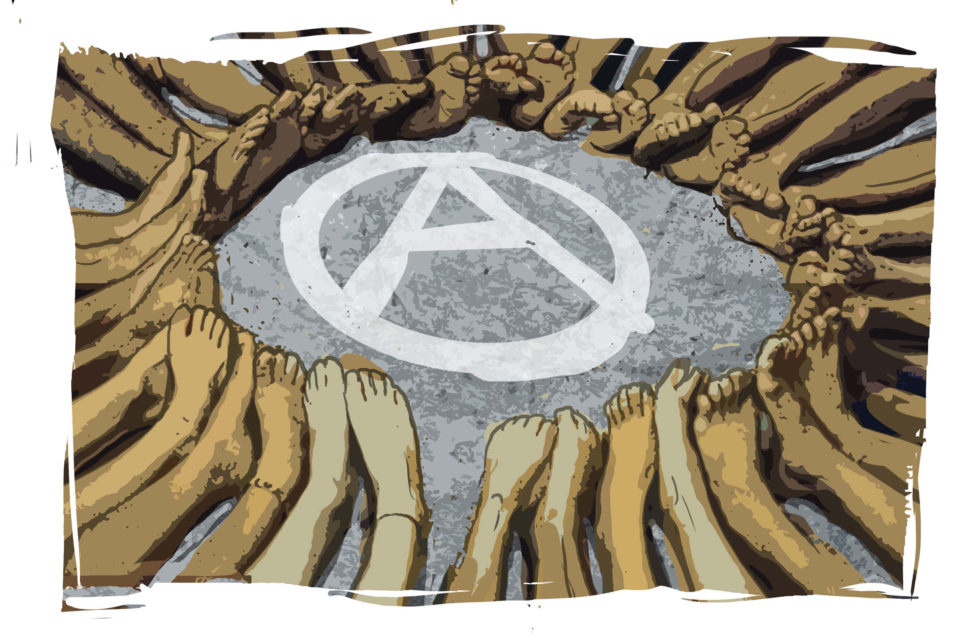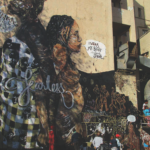The work of radical educator Paulo Freire is a familiar point of reference for the South African left. As well as giving us a pedagogy and, courtesy of Augusto Boal, a theatre of the oppressed, what is less well known is that Brazil has also given us a therapy.
Born in 1927 in Sao Paulo, the writer, playwright and therapist Roberto Freire lived through two dictatorships. As a political activist who identified with anarchism from an early age, Freire was arrested for his subversive activities soon after that country’s military coup in April 1964. In prison, he was brutally tortured, suffering beatings, sleep deprivation and public displays of humiliation where he was forced to read aloud radical articles he had published. Freire’s eyesight was permanently damaged by this torture and he suffered periods of blindness in later life, wearing a signature pirate-style eyepatch with great panache.
On his release, Freire grappled with the physical and psychological trauma of his torture. Generalising from his own experience, he began to recognise how the dictatorship had inflicted deep psychic damage on many members of his political community, which he saw reflected in the negative interpersonal dynamics and dogmatic authoritarianism of a number of radical organisations of the time.
Related article:
While recuperating in France with members of the Living Theatre, an anarchist theatre troupe, Freire was introduced to the work of Sigmund Freud’s renegade student Wilhelm Reich, who wrote The Mass Psychology of Fascism. In the book, Reich, a communist, observes how we internalise the oppressive and exploitative aspects of society not just psychologically, but also somatically – in our bodies. Controversially arguing that this libidinal repression aided the rise of fascism, Reich claims that by dismantling this “body armour” – reflected in everything from rigid, defensive postures to nervous tics and recurring physical ailments – we can also undo some of the psychological, and perhaps even political, effects of authoritarian culture.
Inspired to develop the analyses of Reich into a political practice that could effectively challenge “micro-fascism” as it manifests in groups and individuals, Freire read voraciously, drawing influences from the burgeoning anti-psychiatry movement associated with systemic thinkers such as Gregory Bateson and RD Laing, the Gestalt therapy of Fritz Perls, and Michel Foucault’s groundbreaking analyses of power and normativity. The outcome of this research was the first iteration of somaterapia, “somatherapy”, an eclectic mix of individual therapy, radical political education and collective trust exercises. This soon evolved to include capoeira Angola, a practice combining dance, exercise, ritual performance and music that was developed by Brazilian slaves who transformed their homeland rituals into what a leading practitioner has described as “a game of resistance and liberation”.
Capoeira Angola was originally a form of clandestine organisation and collective empowerment that sought to reaffirm the life force and freedom of the enslaved. In somatherapy, this practice is redeployed as a way of making participants more aware of their bodies and the ways in which they have stored repression, helping them to clear blockages in order to allow tesão – a Portuguese term with no direct translation that connotes pleasure, desire and other forms of libidinal energy – to flow more freely.
Although this may sound like a scientifically dubious form of New Age individualist navel-gazing, somatherapy is carefully structured to remain politically relevant, and its key premises are supported by psychological research. Soma groups – usually of about 20 people – meet weekly, and each session contains a mix of physical, psychological and pedagogical components. A typical session may begin with capoeira, followed by a trust exercise in which participants take turns to close their eyes and fall backwards into the arms of their comrades, before concluding with a period of non-judgmental reflection where the feelings brought up by the exercises are openly explored and their links to authoritarian culture examined. Some sessions also include nuanced, non-dogmatic explorations of capitalism, the state, patriarchy and other aspects of social organisation viewed as hierarchical and alienating. Over about 40 sessions, participants develop trust, bodily awareness and political understanding, with the aim of maximising individual and collective autonomy to become healthier and more politically effective.
Related article:
Powerful forms of play remain crucial in somatherapy, with seemingly innocuous, light-hearted forms of interaction often resulting in deeply revealing and cathartic outcomes. In one exercise, for example, after reminding participants to pay attention to their reactions, the somatherapist asks the group to take turns lifting one member above their shoulders and carrying them around the room. That member is told to relax into the experience. Unexpected emotions and reactions are common, even in simple games like this; while laughter dominates, tremors, sharp pains, dizziness, nausea and tears are not uncommon. Once everyone has had enough, the group gathers to “read” the activity and explore their responses, looking at how tesão flowed or did not flow within or between each of them.
Freire, who throughout his life channelled funds from his books and practice into supporting the militants and families whose lives had been most brutalised by the dictatorship, died in 2008, but somatherapy continues to thrive in Brazil and elsewhere in Latin America. Its core idea – that social repression materialises in the body and can thus be partly overcome through the body – offers the promise of a revolutionary practice that challenges authoritarianism not just as it exists in politics, but also in its more subtle manifestations in the unhealthy collective dynamics, toxic interpersonal relations and unresolved traumas that are often ignored within progressive political groups. The mental image of dour leftists enjoying shared play to fight fascism might strike us as absurd, but developing more trust in ourselves and one another by understanding and overcoming internalised repression is an important task, regardless of how we approach it. As Freire reminds us, in typically polemical fashion, “without desire, there is no solution”.



